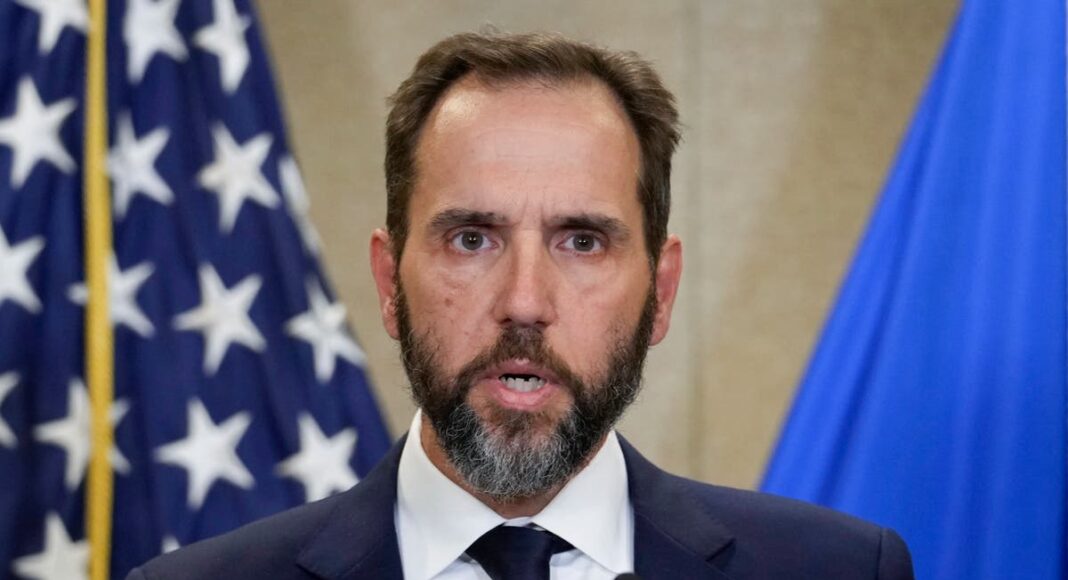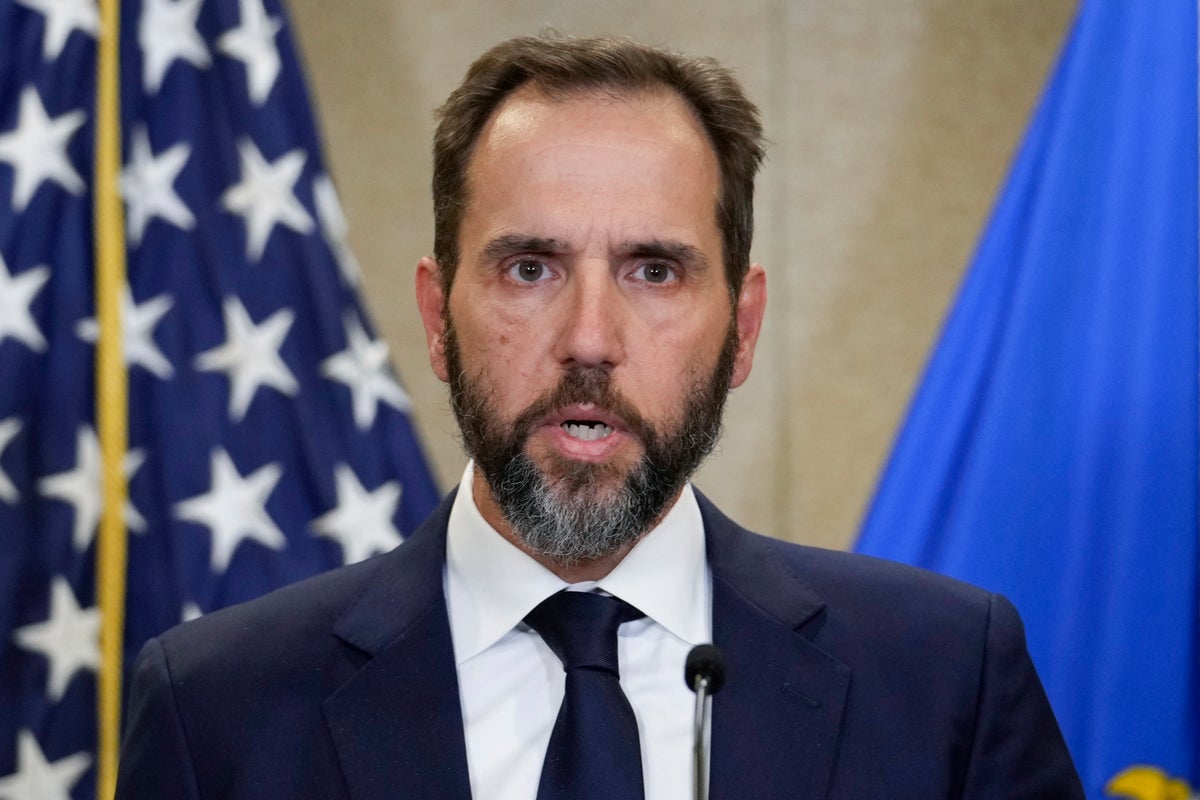Sign up for the daily Inside Washington email for exclusive US coverage and analysis sent to your inboxGet our free Inside Washington email
Special counsel Jack Smith has urged the US Supreme Court to reject Donald Trump’s “unprecedented” claim that presidential immunity protects him from facing federal charges for trying to overturn the 2020 election.
In a 66-page legal filing on Monday, the special counsel’s office wrote that “a bedrock principle of our constitutional order is that no person is above the law — including the president”.
“The Constitution does not give a president the power to conspire to defraud the United States in the certification of presidential-election results, obstruct proceedings for doing so or deprive voters of the effect of their votes,” the filing adds.
The former president was indicted on four federal charges in August relating to his alleged attempt to unlawfully overturn the 2020 presidential election in his favour. He has pleaded not guilty and claims – without eence – that the prosecution is politically motivated.
In fighting the indictment, Mr Trump has claimed that presidential immunity protects him from the special counsel’s charges.
After several lower federal courts rejected the claim, Mr Trump asked the Supreme Court to weigh in on the question in December.
“From 1789 to 2023, no former, or current, president faced criminal charges for his official acts — for good reason,” Mr Trump’s attorneys argued in a brief to the high court last month.
“The president cannot function, and the presidency itself cannot retain its vital independence, if the president faces criminal prosecution for official acts once he leaves office.”
The Supreme Court is expected to hear full arguments on the immunity question on 25 April.
Special counsel Jack Smith is urging the Supreme Court to reject Donald Trump’s immunity claim ()
The special counsel’s office argues that, while presidential immunity limits the ability of presidents to face criminal prosecution for their official duties, Mr Trump’s 2020 campaign to remain in office even after he knew he lost, falls outside this protection as he was not acting in his capacity as president.
Instead, Mr Smith argues, the 2020 effort was a “private scheme with private actors to achieve a private end: petitioner’s effort to remain in power by fraud”.
“The absence of any prosecutions of former presidents until this case does not reflect the understanding that presidents are immune from criminal liability; it instead underscores the unprecedented nature of petitioner’s alleged conduct,” the brief adds elsewhere.
Both Mr Smith and Mr Trump’s teams cited cases involving Richard Nixon to make their arguments about the scope of immunity protections.
The special counsel’s office quotes from the Supreme Court’s 1974 decision in US v Nixon, in which a unanimous court found that then-president Nixon needed to comply with a trial subpoena over Oval Office tapes.
Mr Trump’s side, meanwhile, points to 1982’s Nixon v Fitzgerald, in which a 5-4 court found that Mr Nixon was immune in a suit regarding an Air Force analyst who claimed he was fired in retaliation for criticising the president.
Without such immunities, Mr Trump has argued in his briefs, presidents would be vulnerable to “de facto blackmail and extortion while in office”.
Lower courts have so far sided with Mr Smith’s interpretation, finding Mr Trump’s conduct around the 2020 election isn’t protected via immunity.
“For the purpose of this criminal case, former President Trump has become citizen Trump, with all of the defenses of any other criminal defendant,” a three-judge panel of the US Court of Appeals held in February.
Donald Trump in New York (AFP via )
“But any executive immunity that may have protected him while he served as president no longer protects him against this prosecution.”
In December, Federal District judge Tanya Chutkan ruled similarly, finding: “Whatever immunities a sitting president may enjoy, the United States has only one chief executive at a time, and that position does not confer a lifelong ‘get-out-of-jail-free’ pass.”
A Supreme Court decision on the immunity question could come in June – before the court recesses for summer – though it remains unclear whether the trial would take place before the 2024 presidential election, where Mr Trump is the presumptive Republican nominee.
Mr Trump faces another set of federal charges in Florida regarding his alleged mishandling of classified documents after leaving office.
He is also facing state charges in New York over a hush money scheme and RICO charges in Georgia over his efforts to overturn the election in the state.




